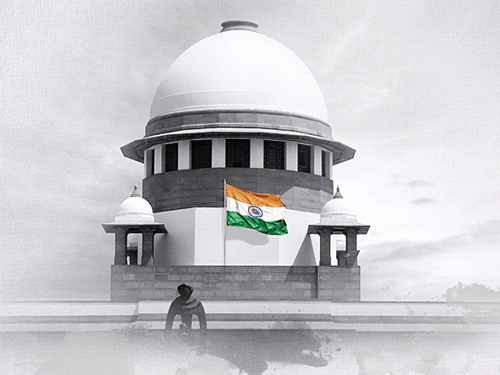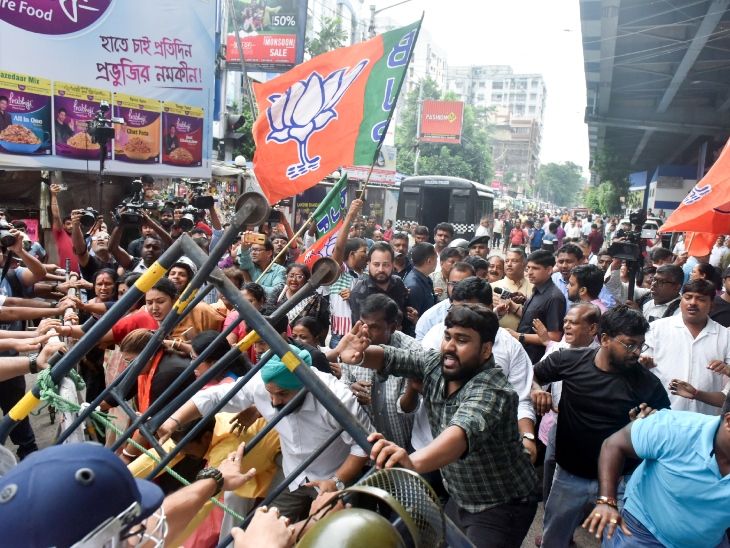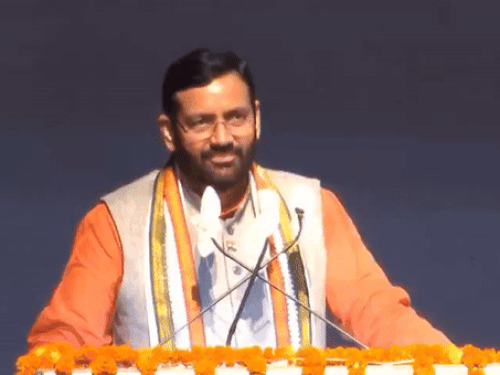New Delhi1 hour ago
- Copy link

Petitions challenging the validity of the Waqf (Amendment) Act will be heard in the Supreme Court for the third consecutive day on Thursday. In May 21 (Wednesday), Solicitor General (SG) Tushar Mehta told the court on behalf of the Center that no one can have any right on government land, even if it is on the basis of ‘Waqf by user’.
According to SG Mehta, if any land is government, then the government has full rights to take it back, even if it has been declared Waqf. No affected party knocked on the door of the court. Nobody said that Parliament does not have the right to pass this law.
Solicitor General argued,

Waqf is an Islamic concept, there is no dispute over it, but Waqf is not an essential part of Islam. Until it is proved, the rest of the arguments fail.


Only 5 petitions are being heard
The bench of CJI BR Gawai and Justice AG Christ is hearing the petitions against the Waqf law. Solicitor General (SG) Tushar Mehta on behalf of the Center and Kapil Sibal are advocating on behalf of the petitioners. Mehta had said, the hearing should be on the three issues on which the answers have been filed.
The Supreme Court is hearing only 5 main petitions against the new Waqf law. This includes a petition by AIMIM MP Asaduddin Owaisi.
Solicitor General’s argument- we did not make a bill without thinking
Solicitor General Tushar Mehta told the Supreme Court that this is not a case where the ministry has created a bill and voted without thinking. Some petitioners cannot speak on behalf of the entire Muslim community. The petitions that you have received have filed by people who are not directly affected by this law.
He further said that no one said that Parliament did not have the right to enact this law. The Joint Parliamentary Committee (JPC) held 96 meetings and we received suggestions from 97 lakh people, which was worked very thoughtfully.
Last hearing in Supreme Court …
May 20: Court told Muslim side- bring strong arguments for relief In the hearing of 20, the bench had said that the Muslim side should strengthen the matter to get interim relief and clarify the arguments. The petitioners said that if any property is under the patronage of the ASI (Archaeological Survey of India), it cannot be a Waqf property.
The CJI had instructed the Muslim side- ‘If there is no clear case, the court cannot intervene. There is a perception of constitutionality in favor of every law. To give interim relief, your arguments should be very strong and clear, otherwise the notion of constitutionalism will remain.
May 15: The court had said- will consider giving interim relief In the May 15 hearing, CJI BR Gawai and Justice AG Christ asked the Center and the petitioner to present the affidavit by 19 May. Lawyers from both sides had said that judges may need some more time to look at the issues of petitions. The Center also said that as long as the Supreme Court is listening to the case, important provisions of the law will not be applicable, the status quo will remain.
April 25: Center filed a 1300 -page affidavit The Center said in the affidavit filed on 25 April that the law is completely constitutional. It has passed from Parliament, so it should not be banned. In the 1332 -page affidavit, the government claimed that since 2013, Waqf properties increased by more than 20 lakh acres. Due to this, many times private and government lands were disputed.

April 17: Solicitor General said- law enacted after millions of suggestions In the April 17 hearing, SG Mehta had said that the law passed with Parliament should not be banned without hearing the government. He had said that a new law has been enacted after millions of suggestions. There are many examples in which the villages were grabbed by Waqf. Many private properties were taken to Waqf. The bench said that we are not taking final decisions.
April 16: The Supreme Court gave three instructions to the Center Kapil Sibal, who is arguing against the law, said, ‘We challenge the provision that only Muslims can make Waqf. How can the government say that only those people who have been following Islam for the last 5 years? Not only this, how can the state decide whether I am a Muslim or not and therefore worthy of making Waqf? ‘

Why Waqf law is protesting …

—————————————– Read this news related to Waqf law too …
There will be 14 major changes in Waqf law, entry into Waqf Board of women and non-Muslims

The Waqf Board has the highest number of land in India after the Railway and Ministry of Defense. About 9.4 lakh acres. 3 cities like Delhi settled in such land. The Central Government will present a bill in Parliament today to change the act related to this Waqf Board. Leader of the opposition and a large section of Muslims are against it. Read full news …




